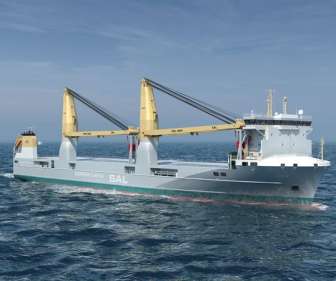Wärtsilä hybrid propulsion system with methanol engine to power four SAL heavy lift vessels; wind farm installations
Green Car Congress
DECEMBER 29, 2022
The technology group Wärtsilä will supply its hybrid propulsion system for four new heavy lift vessels being built at the Wuhu Shipyard in China. Wärtsilä’s hybrid system will feature a variable-speed Wärtsilä 32 main engine capable of operating with methanol fuel. There is an option for an additional two vessels.














Let's personalize your content